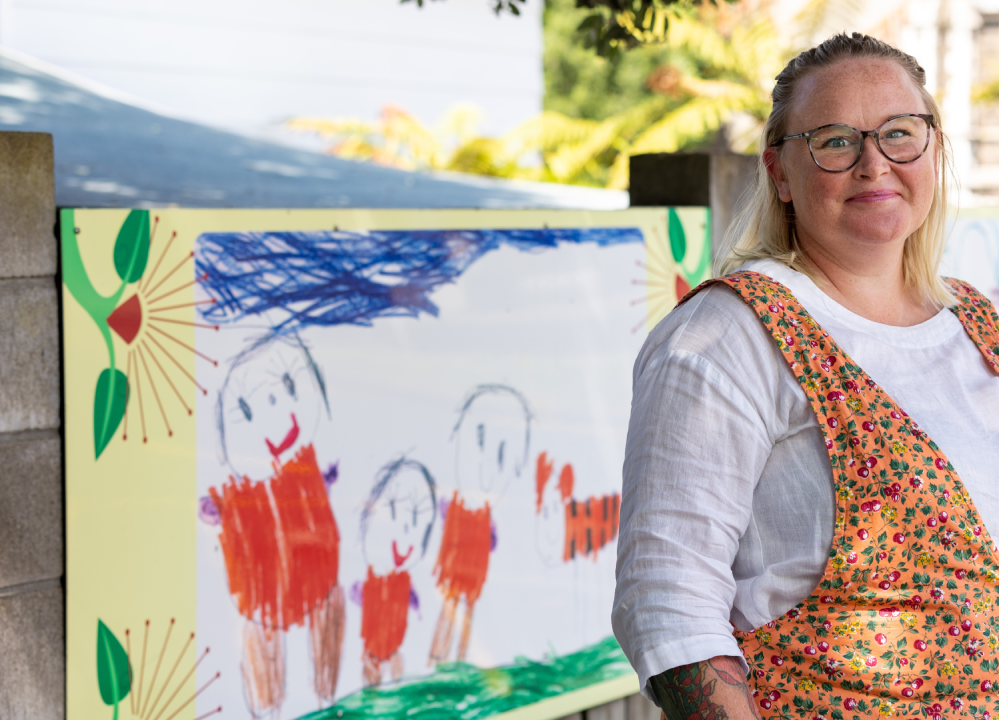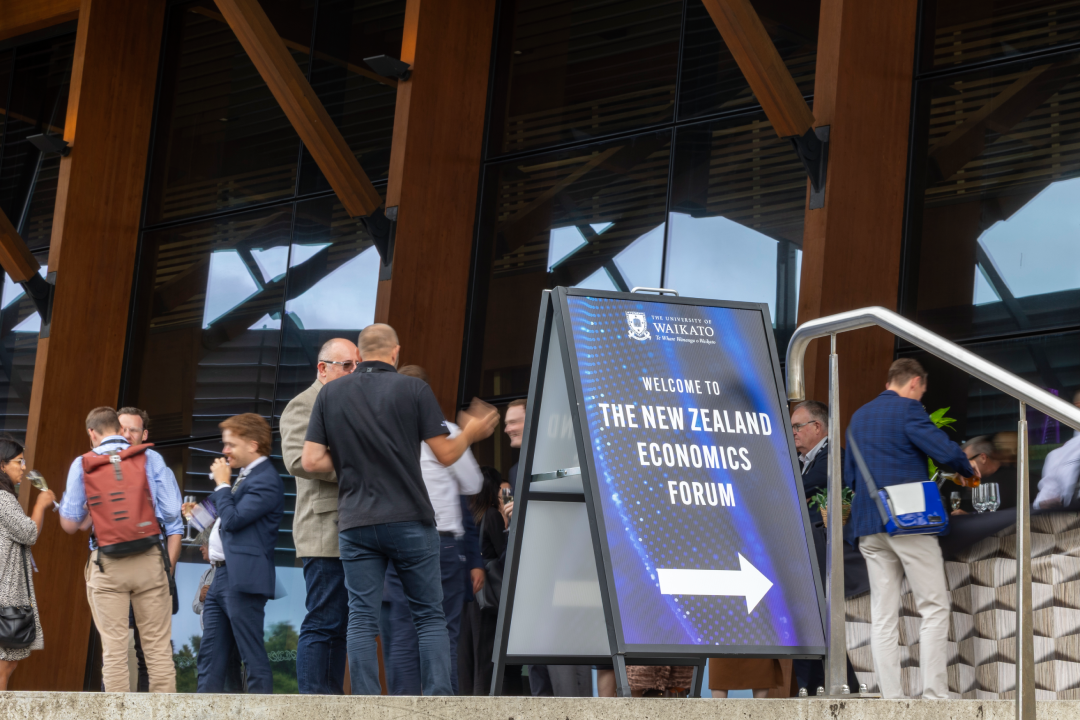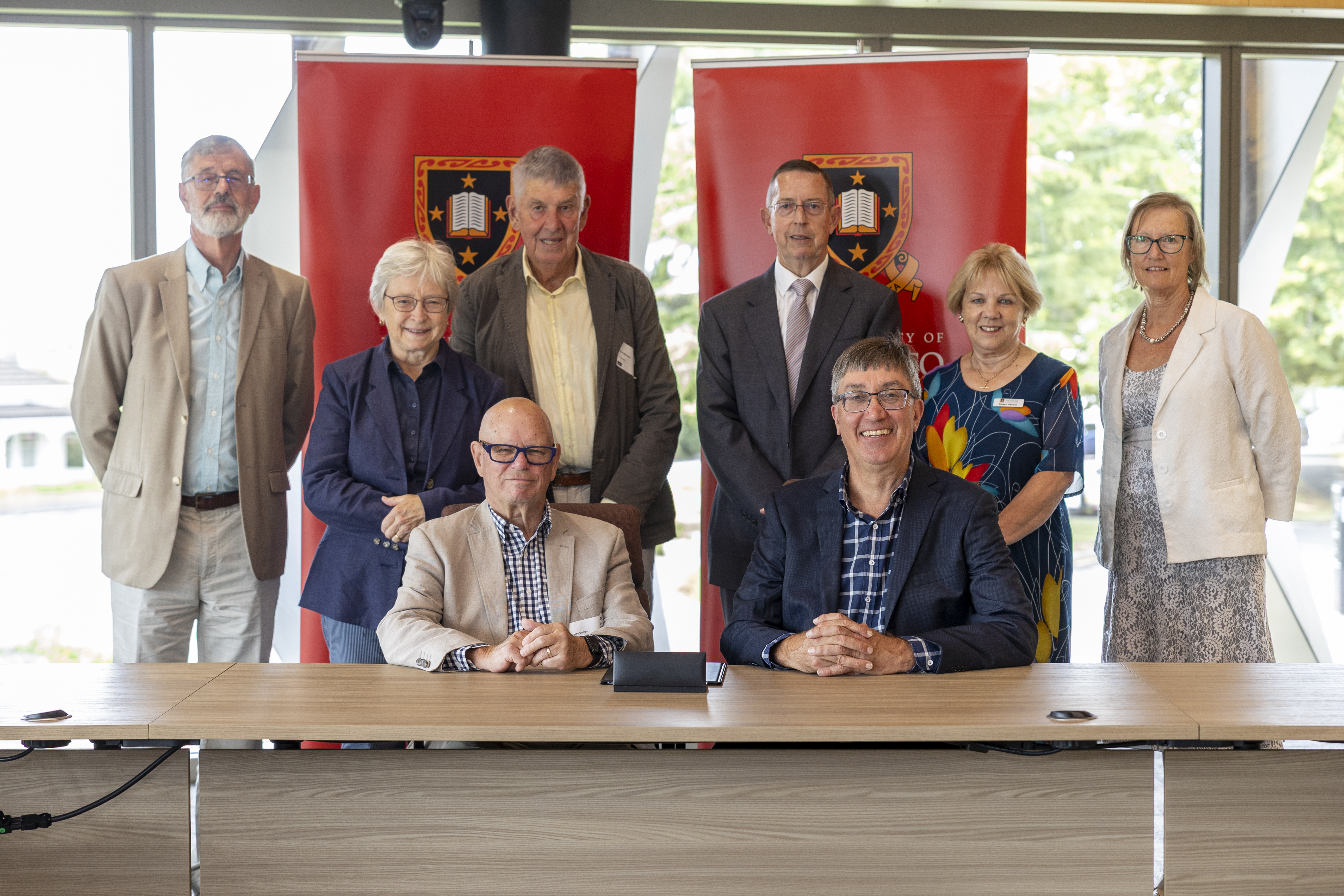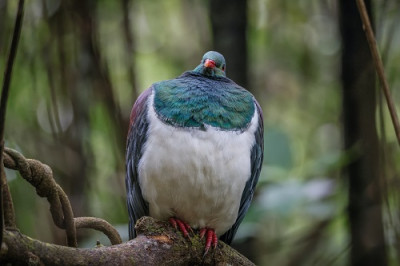
The Aotearoa Species Classifier is 99.9% certain this is a Hemiphaga novaeseelandiae, or Kererū. Photo by Tony Stoddard on Unsplash.
Imagine being able to readily identify every plant and bird in your garden, on a hike or when showing off our beautiful country to visiting family and friends.
A new app, developed by a group of New Zealand researchers can let you do just that.
Members of the TAIAO project at Waikato and Canterbury universities have used a data set of more than 1 million identified images to train Artificial Intelligence (AI) to identify Aotearoa’s plants, animals and fungi. It’s the first tool tailor-made for Aotearoa wildlife and plant species.
The programme recognises unique features in photos of species large and small, from Hector’s dolphins to striated ants, and returns the scientific name, common names, and other related classifications, including Māori names where available.
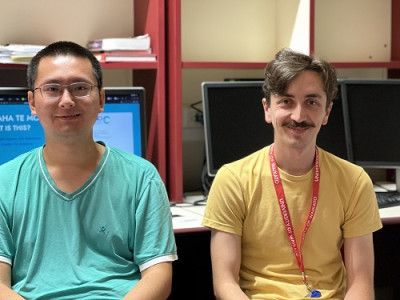
Hongyu Wang and Paul Schlumbom from University of Waikato developed the models and the software for the Aotearoa Species Classifier app.
The Aotearoa Species Classifier app, available in the App store now and Google Play later this year, can identify wildlife wherever the user is, even without an internet connection. An additional web classifier has more powerful models and tools for those who wish to delve deeper at home.
PhD student Hongyu Wang and research programmer Paul Schlumbom developed the models and software and are continuing to work on the project. Paul says they have discovered some unexpected benefits.
“Because we have drawn data from a range of sources, the app is also able to identify pests, which means action can be taken to remove or destroy dangerous pests straight away,” Paul says.
A probability prediction is included in the identification with alternatives if there is any doubt about the likelihood of the species identified.
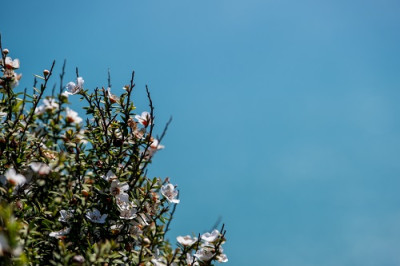
Leptospermum scoparium or Mānuka / Tea Tree. Photo by Sylvain Cleymans on Unsplash. The Aotearoa Species Classifier app suggests taking close up photographs of individual leaves for better identification.
Hongyu says this ensures the integrity of the data. “We can say that normally the confidence is quite high, but with rare species the model might have more trouble. So you can check the top five possibilities if the confidence is not super high.” He says when the model is highly confident, i.e., with a confidence score of over 95%, results show that we can expect high accuracy.
The online version also provides the ability to see the interpretation image which analyses which parts of the image the model is using for the prediction.
The impetus for the project came from Dr Varvara Vetrova, a Senior Lecturer in Statistics at the University of Canterbury and Professor Eibe Frank, Co-Director of the AI Institute based at the University of Waikato. The team also included Associate Professor Michael Cree at Waikato, Landcare experts in systematics, Canterbury Masters student Sheldon Coup, and Waikato Honours student Jeff Mo.

